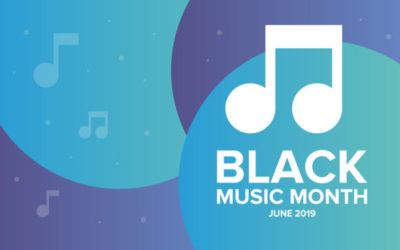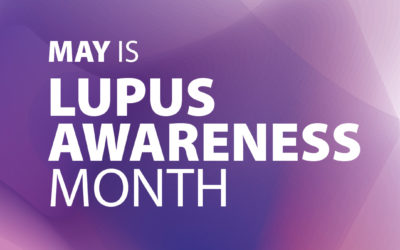
Credit: Womensday.com
A HEART TO HEART ABOUT CARDIOVASCULAR DISEASE
Knowledge is power, especially when it comes to our health. Take heart disease, for example. What you don’t know can prove fatal. Problems affecting the heart and its blood vessels are the number one killer of women in the United States. Even with these numbers, barely a third of African-American women are aware. Similarly, while half of all African-American women have heart diseases, only one in five believe they are personally at risk.1
Cardiovascular diseases kill nearly 50,000 African-American women2 each year – more than all other women – but it doesn’t have to be a death sentence. We can reduce our risk by understanding what causes heart disease, recognizing the symptoms, and taking proactive steps to prevent it. Simply put, it’s time to educate ourselves. Knowledge is power and in this case, it may save our lives.
WHAT CAUSES HEART DISEASE?
According to the American Heart Association, heart disease can take a variety of forms.
Atherosclerosis, also known as Coronary Heart Disease, is the most common form of cardiovascular disease. It develops when plaque attaches itself to the walls of the arteries. A plaque buildup can cause the arteries to narrow, making it harder for blood to flow through and easier for the blood to clot. When this happens, it can stop the flow of blood and lead to a heart attack or stroke.
Heart failure or congestive heart failure occurs when the heart is still working, but it isn’t pumping blood effectively or getting enough oxygen.
Arrhythmia is associated with a fast, slow, or irregular heartbeat. This can affect how well the heart is functioning and whether it can pump enough blood to meet the body’s needs.
Heart valve problems can lead to the heart not opening enough to allow proper blood flow. Sometimes the heart valves don’t close and blood leaks through, or blood flows backward into the upper chamber.
WHO IS AT RISK?
Black women are twice as likely to suffer from heart disease as their white counterparts. Why? Well, for starters:
- Nearly half of Black women have total cholesterol levels that are too high.
- Nearly 80 percent of African-American women are overweight or obese.
- Fifty-five percent of Black women are physically inactive.
- Thirty-seven percent of African-American women have high blood pressure.
- One in five Black women smoke.3
These factors, along with diabetes, aging and a lack of awareness increase our risk of developing cardiovascular problems.
WARNING SIGNS
Heart disease is often referred to as the “silent killer.” So how do you know if you are having a heart attack or cardiovascular distress? Women’s symptoms are very often different from those of men. For women, discomfort, or pain in the center of the chest that lasts more than a few minutes or comes and goes is a common symptom, and while sharp chest pains are a common symptom for men, women often encounter:
- Pain that spreads to the shoulders, stomach, neck, or arms.
- Lightheadedness, fainting, sweating, nausea or shortness of breath.
- Shortness of breath or trouble breathing.
- Sudden anxiety, weakness, or fatigue.
IMPORTANT! If you experience any of these symptoms or think you may be having a heart attack, don’t delay. Call 9-1-1, within five minutes, or less.
HOW TO LOWER YOUR RISK
Here are some proactive steps that you can take to embrace a healthier lifestyle and reduce your risk of developing heart disease:
- Eat healthily – limit the amount of salt and sodium you consume. Plan well-balanced meals that are low in fat and cholesterol and heavy on the fruits and vegetables.
- Get moving! – Commit to adding 30 minutes of moderately intense exercise like walking, dancing, or aerobics to your daily routine at least five times a week.
- Manage your blood pressure, sugar, and cholesterol levels and make a note of what is considered the healthy range.
- Maintain a healthy weight.
- Limit your alcohol intake. For women, this means one drink a day.
- Don’t smoke, and if you do, quit. Research suggests that one year after you stop smoking, the risk of heart disease drops by over 50%.
- Familiarize yourself with the risk factors and symptoms of heart disease and contact your doctor if you experience any of them.
MORE INFO PLEASE
To learn more about heart disease, visit the following websites:
American Heart Association:
www.goredforwomen.org/about-heart-disease/facts_about_heart_disease_in_women-sub-category/african-american-women/
Black Women Health Imperative:
www.bwhi.org/issues_and_resources/heart-disease-and-black-women-the-silent-killer-that-speaks-volumes
U.S. Department of Health and Human Services: National Heart, Lung and Blood Institute
https://www.nhlbi.nih.gov/health/educational/hearttruth/downloads/pdf/factsheet-actionplan-aa.pdf
Center for Disease Control and Prevention:
https://www.cdc.gov/dhdsp/data_statistics/fact_sheets/fs_aa.htm
♦♦♦
1https://www.goredforwomen.org/about-heart-disease/facts_about_heart_disease_in_women-sub-category/african-american-women/
2Ibid
3https://www.nhlbi.nih.gov/health/educational/hearttruth/downloads/pdf/factsheet-actionplan-aa.pdf
OTHER NEWS
SPOTLIGHT FEATURE ON JACK AND JILL OF AMERICA, INC.
To be valued and loved. To know who you are and that you have the power to make a
difference. These are the aspirations that most mothers have their children. In 1938, in the midst
of the Great Depression, twenty African-American mothers in Philadelphia came together not to
hope or to dream, but to provide the opportunities, experiences, and life lessons that would
enable their children and others to live these truths. Their group became Jack and Jill of
America, Inc. – an organization that’s mission is as relevant today as it was some 80 years ago.
JUNE IS AFRICAN AMERICAN MUSIC APPRECIATION MONTH
This June, The Black Women’s Agenda, Inc. (BWA) joins our nation in celebrating the 40th Anniversary of African American Music Appreciation Month.
The month-long observance, which was first inducted on June 7, 1979, by President Jimmy Carter was christened as Black Music Month. President Barack Obama renamed the national observance as African-American Music Appreciation Month. The observance was created to recognize and celebrate the historical influence African-Americans have had on the music industry and is intended to pay homage to the many artists, writers, songs and albums that have inspired music lovers and shaped American pop culture.
May Is Lupus Awareness Month
In honor of Lupus Awareness Month, the Lupus Foundation of America released a new survey they recently commissioned which reveals the need for better public understanding of this devastating autoimmune disease and why early diagnosis is so important.
According to the Lupus Foundation of America, “The survey sample was designed to be reflective of the U.S. population’s diverse demographics. Women of color are at two to three times greater risk for developing lupus than Caucasian women. However, over half of respondents (62%) didn’t recognize that minority populations were disproportionately impacted by lupus.
Minority women tend to develop lupus at a younger age, experiencing more serious complications and have higher mortality rates. This was reflected among minority respondents who indicated they were also more worried about developing the disease than others surveyed: 44% compared to 29% of the sample overall.”
No feed found with the ID 1. Go to the All Feeds page and select an ID from an existing feed.
© 2025 The Black Women’s Agenda, Inc. All Rights Reserved. Privacy Policy








